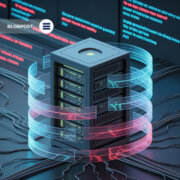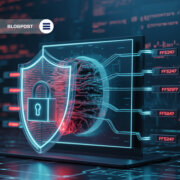We find ourselves up against adversaries who have a multitude of motivations driving their actions. To truly protect our digital domains, we need to dive deep into the intricate psychology of cyberattacks, trying to untangle the complex web of reasons that lead hackers down the path of their malicious activities.
Deciphering the Minds of Cyber Attackers
In the constantly shifting world of cybersecurity, a place known for its intricate and ever-changing nature, hackers have become adept at employing a range of strategies to breach systems, steal valuable data, and create havoc.
As we remain vigilant against these persistent threats, we’re drawn to explore the intricate psychology of these cyber attackers, delving into the depths to understand what compels them to engage in these malicious activities. In this enlightening discussion, we’ll embark on a journey to dissect and grasp the various motivations that drive hackers into the world of cyberattacks.
Motivations Behind Cyberattacks
In the intricate world of cyberattacks, understanding the motivations that drive hackers is akin to deciphering a complex puzzle. These digital renegades employ many tactics to infiltrate and exploit systems, but beneath their clandestine actions lies a diverse tapestry of motivations that fuel their activities. Let’s unravel the layers of hacker psychology:
- Financial Gain: At the forefront of hackers’ motivations stands the allure of financial gain. For many, the prospect of illicit wealth is an irresistible temptation. These hackers target individuals and organizations with the intent to steal sensitive financial information, such as credit card details, or extort ransom payments in exchange for stolen data.
- Hacktivism: Some hackers are not driven by personal gain but by strong ideological or political beliefs. These hacktivists employ their skills to advance their causes, often targeting government agencies, corporations, or institutions they perceive as adversaries. Their weapons of choice: disruption and the release of sensitive information.
- Revenge: The potent cocktail of personal vendettas and a thirst for revenge can drive individuals to the dark side of hacking. In the wake of perceived wrongs, these hackers use cyberattacks as a means of retaliation, aiming their digital arsenal at individuals, businesses, or organizations associated with their grievances.
- Curiosity and Challenge: The intellectual thrill of solving intricate puzzles and outsmarting security systems is a compelling motivation for some hackers. They view hacking as a cerebral challenge and seek to test their mettle against the most robust cybersecurity measures.
- Espionage: State-sponsored hackers engage in cyber espionage on the geopolitical stage, motivated by the pursuit of classified information or a competitive edge in global affairs. These hackers are foot soldiers of national interests, often affiliating with government agencies.
- Thrill-Seeking: Much like adrenaline lovers drawn to extreme sports, some individuals are lured into hacking by the exhilaration it provides. The risk and excitement of engaging in illicit cyber activities can be an irresistible motivator.
- Profitable Criminal Enterprises: Within the shadowy underbelly of the digital world, hackers operate as part of organized criminal networks. Their activities span identity theft, credit card fraud, and the undercover sale of stolen data on the dark web. The promise of lucrative opportunities drives these cyber criminals.
- Social Recognition: The desire for recognition looms large in the virtual realm of hacking communities. For some, achieving notoriety as a skilled hacker is a powerful incentive. The pursuit of a digital legacy propels them into cyberattacks, where their exploits are celebrated.
In the multifaceted world of cyber threats, these motivations intermingle and evolve, creating a constantly shifting landscape. By comprehending the driving forces behind cyberattacks, we can better equip ourselves to defend against this ever-present danger and safeguard the digital realm.
Unmasking Hacker Motivations for Effective Defense
In this era where the digital landscape offers both abundant possibilities and constant threats, it’s absolutely crucial to understand the intricate motivations that fuel cyberattacks. These covert adversaries come in various forms, each with their own distinct motivations. As we embark on this journey to unravel the psychology of cyber attackers, we equip ourselves with the tools needed to protect and secure our digital domains.
Understanding the Motivations Behind Cyberattacks
At the heart of effective cybersecurity strategies lies the profound comprehension of what compels hackers to venture into the dark corridors of the digital world. Organizations and individuals alike must realize that hackers are a diverse spectrum, their motivations as varied as their methods. Only by delving deep into these digital adversaries’ labyrinthine minds can we hope to fortify ourselves against the ceaseless evolution of threats.
A Path Towards a More Secure Digital Landscape
As we shed light on the mysterious motivations behind cyberattacks, we illuminate the path toward strengthening our digital defenses. This journey is a continuous evolution, where comprehending the motivations of our adversaries serves as our guiding star.
Knowledge becomes our most formidable shield in the ever-changing terrain of the digital world. With this understanding, we empower ourselves to steadfastly face the unceasing wave of cyber threats, paving the way for a more secure digital realm.
Brandefense: Guardians of Digital Integrity
At Brandefense, we stand as unwavering sentinels in the face of diverse cyber threats. Our dedication to safeguarding our customers’ brands and reputations is unwavering.
We recognize that comprehending the motivations of hackers is an indispensable stride on our journey to achieving this vital mission. In the turbulent waters of cyberspace, we chart a course to protect what matters most: your digital legacy, integrity, and success.





